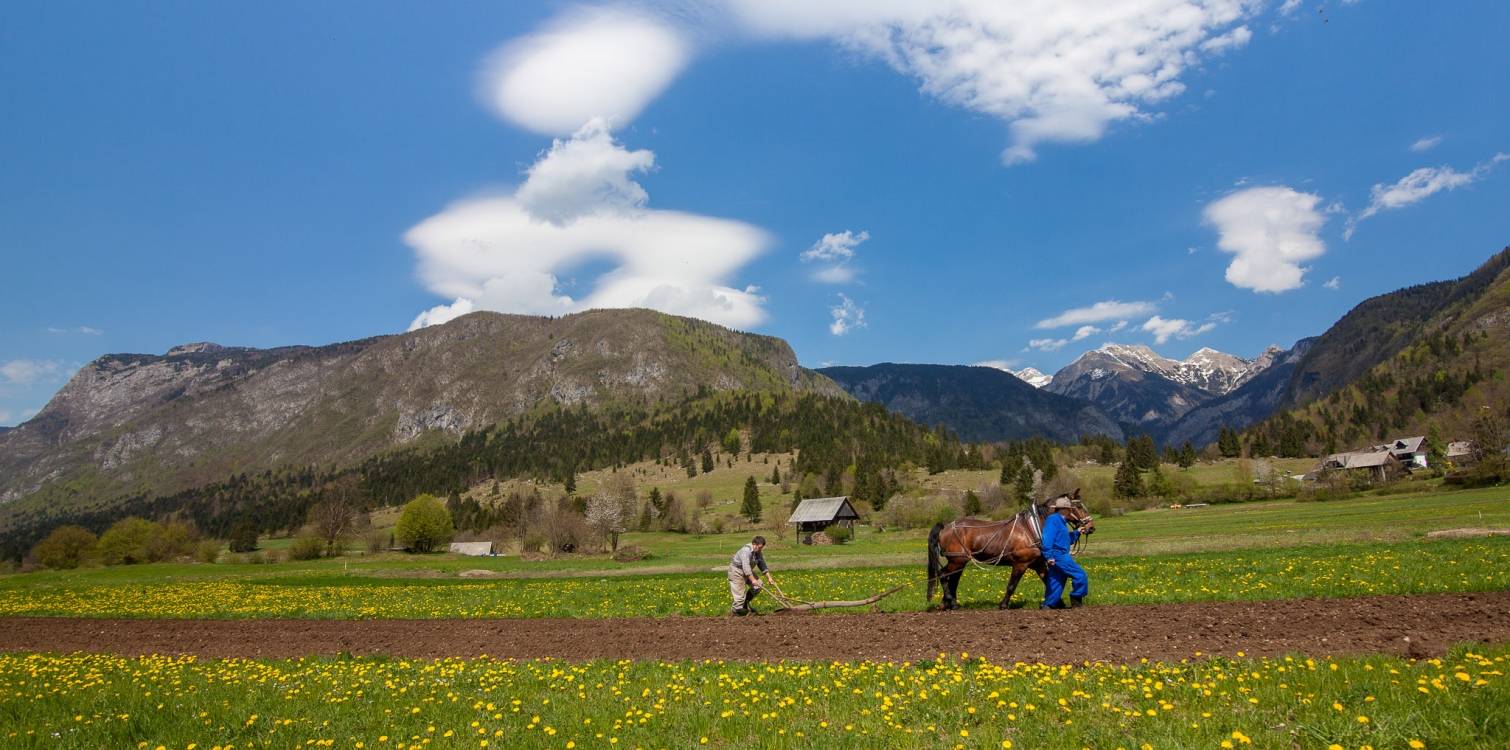New approaches in agriculture have made work easier for farmers and increased their harvests, though often at the cost of disrupting the natural balance and endangering the survival of numerous plant and animal species dependent on traditional agricultural landscapes. Natural conditions in the Triglav National Park area are less suitable for intensive farming practices which have a negative effect on species and landscape diversity. Nevertheless, certain detrimental effects of changed spatial use cannot be entirely avoided. Therefore, the park's mosaic cultural landscape is an indicator of the area's rich biodiversity and aesthetic quality.
Land owners, mainly farmers, are often faced with a dilemma as they must choose between profit, bureaucratic pressure and their own wishes and ethical considerations. With survival their first priority, their decisions are usually financially driven. Still, these people know well the importance of living in harmony with nature because only agriculture or any other economic activity that considers the needs of other living beings and respects the natural conditions and limitations can be sustainable, and therefore successful and profitable in the long run.

